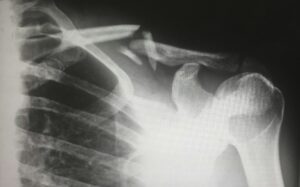Table of Contents
ToggleWhat Is the Difference Between Express and Implied Consent?

A healthcare professional, such as a doctor, needs your informed consent in order to provide you with medical treatment. From their point of view, your consent protects them against medical malpractice liability. It protects you against medical treatment that you don’t want. Express consent and implied consent are the two main types of consent.
Express Consent
What is express consent? Express consent arises when you tell someone in so many words, “I consent to [description of medical treatment],” after learning about the treatment and its risks. This is express permission for your healthcare provider to perform medical treatment on you.
Most of the time, express consent applies when you sign a document giving your doctor permission to perform medical treatment on you. This document can serve as evidence in a medical malpractice claim. Your doctor can use it as evidence of informed consent, and you can use it as evidence of the establishment of a doctor-patient relationship.
Information Included in an Express Consent Authorization Form
Always read your consent form before you sign it. It should include the following information:
- Your diagnosis;
- A detailed description of the proposed treatment;
- A description of the benefits of the treatment;
- The risks and possible side effects of the treatment; and
- A statement of why your doctor believes the treatment is your best option.
Your signature on the consent form constitutes your agreement that you understand the contents of the consent form and still agree to treatment.
Procedures That Require Express Consent
The following medical treatments always or usually require patient consent:
- Surgery;
- Anesthesia, especially general anesthesia;
- Biopsies;
- Blood transfusions;
- Chemotherapy;
- Blood testing for a disease (such as HIV); and
- Vaccinations.
Other medical treatments may require consent as well.
Implied Consent
What is implied consent? Implied consent occurs when you indicate through your actions that you consent to a procedure. It also includes circumstances where consent is implied by the circumstances.
Examples of Implied Consent
Following are some examples of implied consent:
- Sitting down in the doctor’s office and rolling up your sleeve after the doctor proposes giving you an injection;
- Going to a lab to get your blood drawn; and
- Showing up for a routine physical exam.
If you show up for an injection and the doctor decides on the spot that you need emergency surgery, however, your doctor will need your express consent. Other examples of implied consent arise when:
- You need emergency medical treatment, but you are unconscious or unable to speak or write. Your doctor can assume, for example, that you consent to life-saving surgery after a car accident.
- You are an infant or a small child.
- You are mentally ill or mentally disabled.
- There is a language barrier between you and your doctor.
There may be other situations that allow your healthcare provider to presume your consent to medical treatment.
Consent Is Usually Not a Valid Defense to a Medical Malpractice Claim
You might anticipate that your doctor will assert a consent defense to your medical malpractice claim. This defense only works under limited circumstances. You can consent to a risky medical treatment, for example, but no court will presume that you consented to incompetent medical care.
Lack of Consent Can Constitute Medical Malpractice in California
Although consent is not a valid defense against incompetent medical care, lack of consent can constitute medical battery under California law. Consent is lacking if:
- Your doctor never sought consent even when it was possible and convenient to do so;
- Your doctor obtained your “consent” without informing you of the true risks of the procedure;
- Your doctor obtained your consent to unnecessary medical treatment by exaggerating your need for it; or
- Your doctor obtained your consent for one procedure but actually performed another procedure.
You can win medical malpractice compensation if you were harmed by the procedure.
A Los Angeles Medical Malpractice Lawyer Can Help You Prove Your Claim
You might believe you have a valid medical malpractice claim against your healthcare provider. Medical malpractice claims are complex, however, and they are difficult to win without legal assistance. An experienced medical malpractice attorney can help you sort things out.
Contact Our Car Accident Law Firm in Los Angeles, CA
If you were injured in an accident in Los Angeles, CA or you lost a loved one and you need legal assistance, please contact us to schedule a free consultation. One of our Los Angeles car accident lawyers at M&Y Personal Injury Lawyers will get in touch with you soon.
M&Y Personal Injury Lawyers – Los Angeles Office
4929 Wilshire Blvd Suite 960,
Los Angeles, CA 90010
866-864-5477
M&Y Personal Injury Lawyers – Downtown Office
350 S Figueroa St Suite 276
Los Angeles, CA 90071
(877) 751-8953




